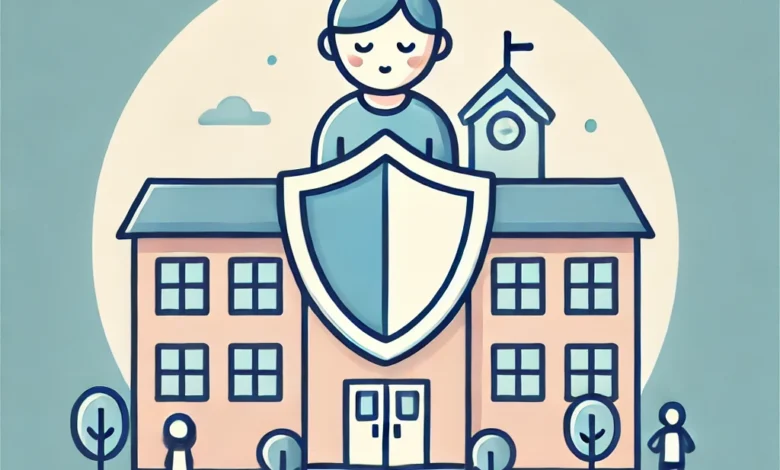Child Protection Laws in the United States: What Are Parents’ Responsibilities?

WASHINGTON, D.C. – The United States enforces strict child protection laws, considering child abuse and neglect as serious offenses with severe legal consequences for offenders. This article explores parental responsibilities, legal definitions of child abuse and neglect, and the consequences of failing to meet these obligations.
Types of Child Abuse and Neglect
Child abuse and neglect can take various forms, including:
- Physical abuse: Any act that causes bodily harm to a child, such as hitting, punching, kicking, or throwing objects.
- Emotional abuse: Actions that harm a child’s psychological well-being, including insults, humiliation, threats, and persistent ridicule.
- Sexual abuse: Any inappropriate sexual contact or exposure to explicit content, whether physical or through media such as images and videos.
- Neglect: Failing to provide basic necessities such as food, shelter, clothing, medical care, and supervision. Leaving a child home alone without adequate care may be considered neglect.
Leaving a Child Home Alone
Leaving children without supervision can be legally classified as neglect, particularly if it places the child at risk. However, U.S. states have different laws on the minimum age at which a child can be left alone.
For example:
- Illinois – Minimum age: 14 years
- Maryland – Minimum age: 8 years
- Oregon – Minimum age: 10 years
In other states, neglect cases are evaluated individually based on the child’s age, maturity, and the level of risk.
Mandatory Reporting of Child Abuse
Certain professionals in the U.S. are legally required to report suspected cases of child abuse or neglect. These include:
- Social workers
- Doctors and healthcare professionals
- Teachers and school staff
If you suspect child abuse or neglect, you can report it anonymously to local authorities or the National Child Abuse Hotline.
State-Specific Child Protection Laws
Child protection laws vary by state. For instance:
- Illinois mandates a minimum age of 14 years to leave a child home alone.
- Maryland requires children to be at least 8 years old before being left unsupervised.
- Oregon sets the minimum age at 10 years.
In states without specific laws, child neglect cases are assessed on an individual basis.
If parents struggle to meet their child’s needs, there are social services available to provide financial assistance and childcare support.
Legal Consequences of Child Abuse and Neglect
The U.S. imposes severe penalties for child abuse and neglect. Some of the legal consequences include:
- Loss of parental custody: If authorities determine that a parent has abused or neglected their child, the state may remove the child from the household and place them in protective care.
- Criminal charges: Parents or guardians found guilty of abuse or neglect may face prosecution, fines, or imprisonment.
- Government intervention and supervision: In cases of reported abuse, children may be temporarily removed from their home while an investigation is conducted.
Parental Responsibilities in the U.S.
Parents and guardians have legal obligations toward their children, including:
- Providing basic needs: Parents must ensure their child has adequate food, housing, and clothing in a safe environment.
- Ensuring health and medical care: Parents must provide medical checkups, vaccinations, and mental health support for their child.
- Education and schooling: Parents must enroll their child in school and support their academic progress.
- Financial support: Parents are responsible for covering daily expenses and securing their child’s future financial stability.
- Supervision and protection: Parents must monitor their child’s activities, including friendships, social interactions, and online activity, to prevent harm.
- Emotional and psychological support: A supportive home environment builds a child’s confidence and social skills.
Long-Term Consequences of Child Abuse and Neglect
Children who experience abuse or neglect often suffer from long-term emotional and psychological damage, including:
- Depression and anxiety
- Low self-esteem
- Increased risk of substance abuse
- Social difficulties and academic struggles
If you suspect a child is being abused, you can report it to:
- Local child protective services
- The National Child Abuse Hotline (Childhelp)
- The National Center for Missing & Exploited Children
If the child is in immediate danger, call 911 for emergency assistance.
Parental Rights and Responsibilities in Schools
Parents in the U.S. must ensure their children attend school. Public, private, and homeschooling options are available, and each state sets specific requirements for school attendance. Parents also have the right to request special accommodations for their child’s educational needs, including support for language barriers, disabilities, or religious practices.
Schools must inform parents about bullying, discrimination, or safety concerns affecting their children. Parents can report bullying or harassment to school staff, and schools are legally required to take action to ensure student safety.
Support Systems for Immigrant Families
For immigrant families adjusting to life in the U.S., various support services are available, including:
- Childcare assistance programs
- Mental health counseling services
- Financial aid and legal services
Finding Help and Resources
If parents need support, they can access:
- Legal aid services for immigrants
- Childcare and education programs
- Financial assistance and housing support
Protecting Children’s Rights
The U.S. has strict child protection policies, with agencies dedicated to preventing abuse and neglect. Local child protection services investigate reports and ensure children’s safety. State hotlines allow anonymous reporting, ensuring privacy for those reporting abuse.
Conclusion
Child abuse and neglect are serious crimes in the U.S., with strict legal consequences for offenders. Parents and guardians must fulfill their legal responsibilities, including providing care, education, and emotional support. Failure to meet these responsibilities can result in legal action and loss of parental rights.
Understanding these laws is essential for building a safe and supportive environment for children and preventing legal issues.
This article includes information sourced from HelloAmerica, with additional contributions by the author.



